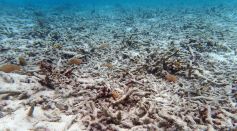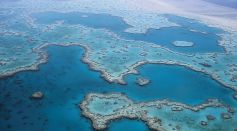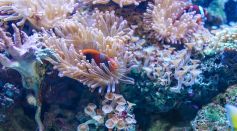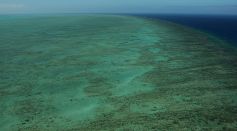Tags: Coral bleaching

How Does Coral Bleaching Affect Coral Reefs? Why Does It Happen?

Curcumin Shows Promising Results in Shielding Coral from Climate Change-Induced Damage

Massive Coral Bleaching Due to Climate Change Makes It Harder for Reef Fish To Identify Competitors, Study Finds

Scientists On the Verge of Finding Beneficial Supplements for Coral Reefs That Might Improve Conservation

First-Ever Mapping on Living Corals Identify Heatwave Impact, Reveals 'Winner and Loser' Reefs

Corals Still Wiped Out Even If Paris Agreement Successful

Saving Coastline Fortresses: Probiotics Boost Coral Health; Bacteria Prevent Mortality From Heat Stress

Coral Reefs in More Polluted, High Traffic Water Handled Extreme Heats Better Than Untouched Environments
Probiotic Bacteria May Help Corals Endure Heat Stress, Bleaching

Why Coral Reefs Turn White? Science Explains
Coral Reef Restoration Needs Researchers Help

Climate Change Surviving Corals Found, Scientists Gain New Hope
Stanford Reseachers Identify Coral Gene Associated with Heat Tolerance

The Great Barrier Reef Has Declined By Half, New Study Shows
Warm Florida Waters Cause Coral Bleaching & Kill Thousands of Fish
Corals Emit Own Display of Colorful 'Sunscreen' to Fight Back Against Bleaching
The Great Barrier Reef Has Bleached For the Third Time and is The Most Far-Reaching In 5 Years!

‘Pokemon Sword and Shield’ News & Update: Corsola Has Been Bleached to Death?
Pacific Heat Threatens Coral Survival in Hawaii
The Great Barrier Reef Rated “Very Poor”
Most Popular

Viruses vs Bacteria: Key Differences, How They Spread, and How We Treat Them

How Ice Cores Reveal Climate History: Insights from Paleoclimate Science and Ancient Data

Recycling Myths vs Facts: What Actually Gets Recycled and How to Do It Right

Space Debris and Orbital Pollution: Rising Space Junk Threats and Collision Risks Around Earth





